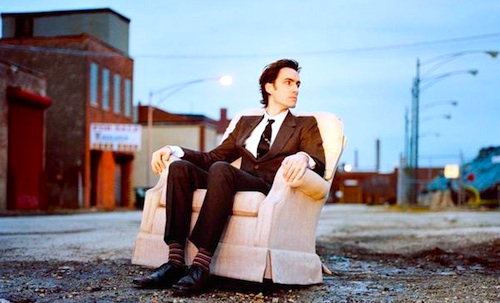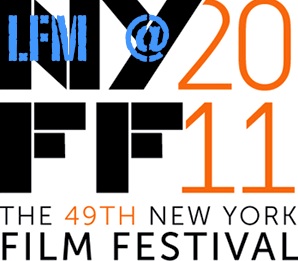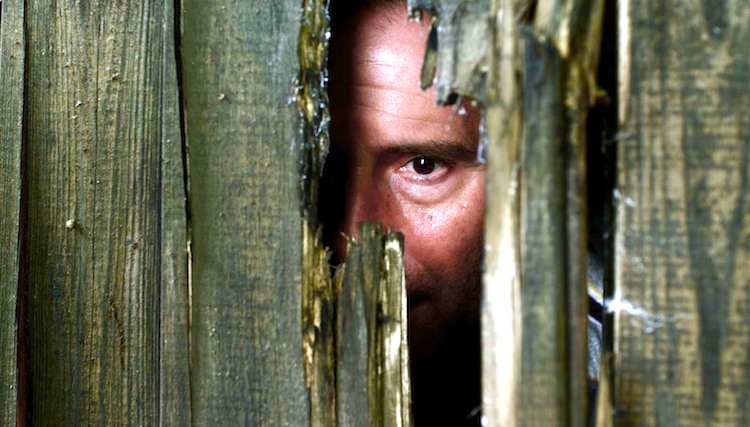
By Joe Bendel. When a musician breaks out after years of scuffling, they should strike while the iron is hot. Andrew Bird understands this. When his tricky-to-categorize hybrid of string band and jam band alternative music caught on, he spent nearly an entire year on the road headlining concerts at up-scale theaters. It took a toll physically, as viewers witness in Xan Aranda’s behind-the-scenes concert documentary, Andrew Bird: Fever Year, which screens during the 49th New York Film Festival.
Bird is definitely a live act. A musician with a jazz background who spent years gigging as a solo, the multi-string instrumentalist and vocalist incorporates a great deal of improvisation into his shows. His current band was specifically chosen for their ability to react and play-off his in the moment decisions. In fact, bassist and reed player Michael Lewis also has a jazz background, as befitting the son of a jazz musician.
Through much of the tour, Bird suffers from the titular low-grade fever. Yet, this almost seems to be something the musician masochistically needs to struggle against in order to maintain each show’s freshness. Indeed, he explicitly demands their concerts be spontaneous and never feel scripted, well aware that this sometimes involves falling without a net.
 Wisely, Bird and Aranda focus almost entirely on the subject of music. We learn next to nothing about his private life and glean no idea about his political views (not that we care, anyway). Frankly, it is refreshing to listen to a musician discuss the performance process with such insight. Hearing Bird breakdown his thought process during one of the live numbers captured in the film should be fascinating for his established fans and create a few new converts, as well. Though equally interesting material, his Zen-like composing methods are so idiosyncratic that they’re unlikely to be applied by other musicians. Mind-bogglingly, he uses no notation, simply molding each song from memory day after day. Still, this method has produced a considerable body of work, so more power to him.
Wisely, Bird and Aranda focus almost entirely on the subject of music. We learn next to nothing about his private life and glean no idea about his political views (not that we care, anyway). Frankly, it is refreshing to listen to a musician discuss the performance process with such insight. Hearing Bird breakdown his thought process during one of the live numbers captured in the film should be fascinating for his established fans and create a few new converts, as well. Though equally interesting material, his Zen-like composing methods are so idiosyncratic that they’re unlikely to be applied by other musicians. Mind-bogglingly, he uses no notation, simply molding each song from memory day after day. Still, this method has produced a considerable body of work, so more power to him.
Aranda deserves a great deal of credit for the integrity of her approach, displaying confidence the audience will be interested in Bird’s creative process and the music itself, rather than the usual extraneous rubbish. The resulting Fever definitely proves Bird is a technically accomplished musician, a fleet improviser, and an eloquent interview subject. She also ends the film on the perfect note: Bird’s encore number and only cover we hear from the concert. Recommended for Bird fans and first-time listeners alike, Fever screens this Saturday (10/1) and Sunday (10/2) as part of the 2011 New York Film Festival.
Posted on September 27th, 2011 at 7:09pm.
